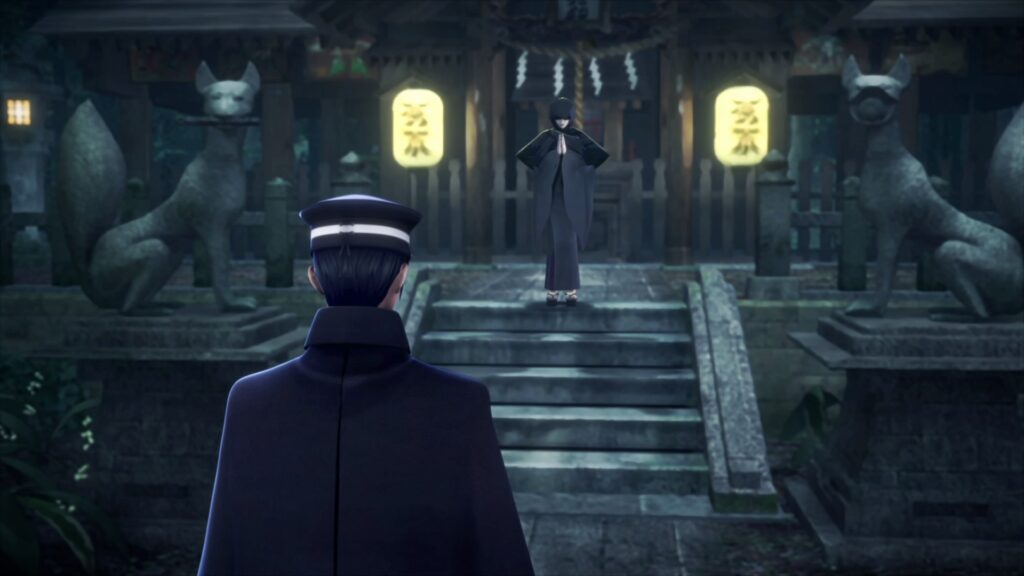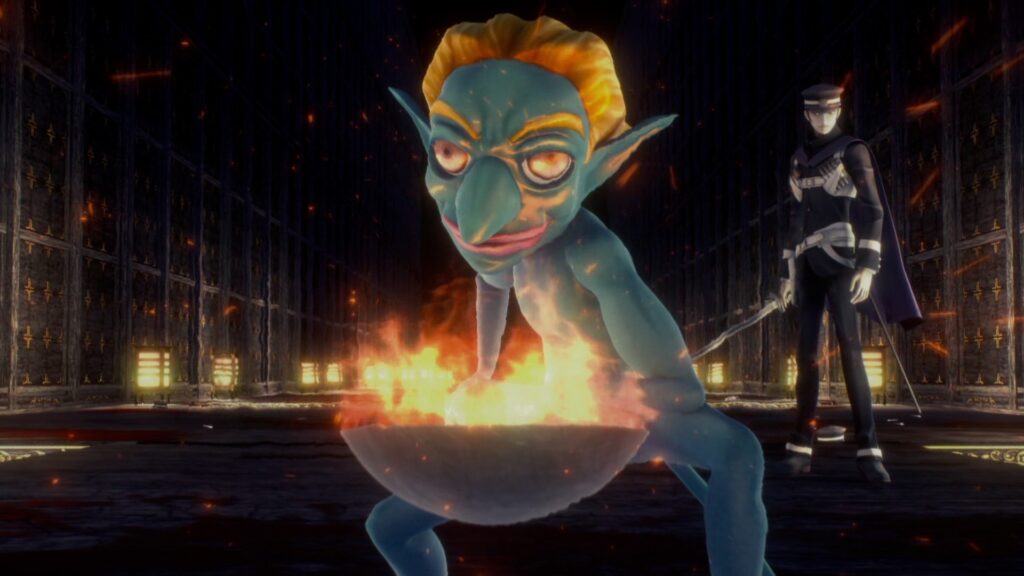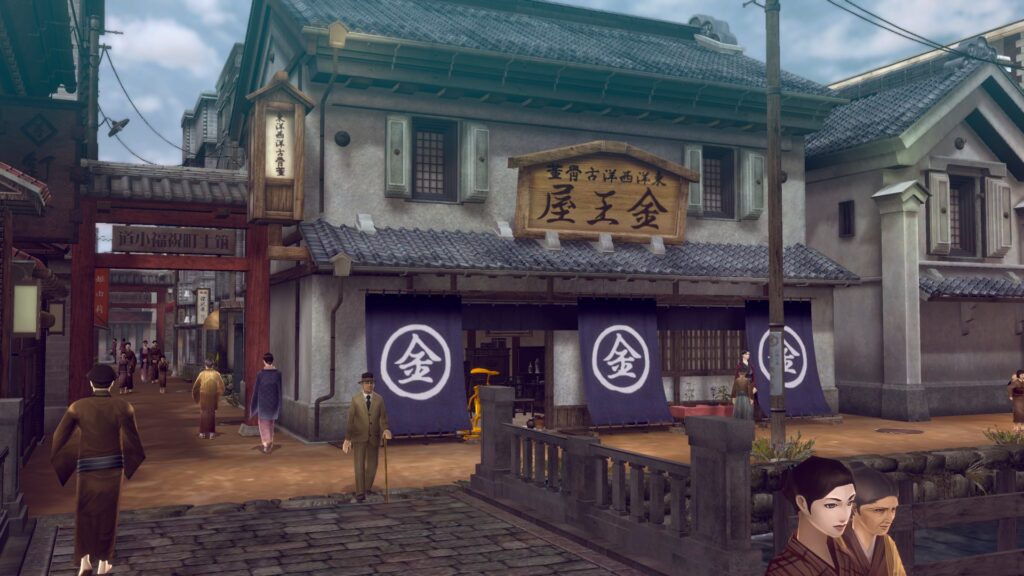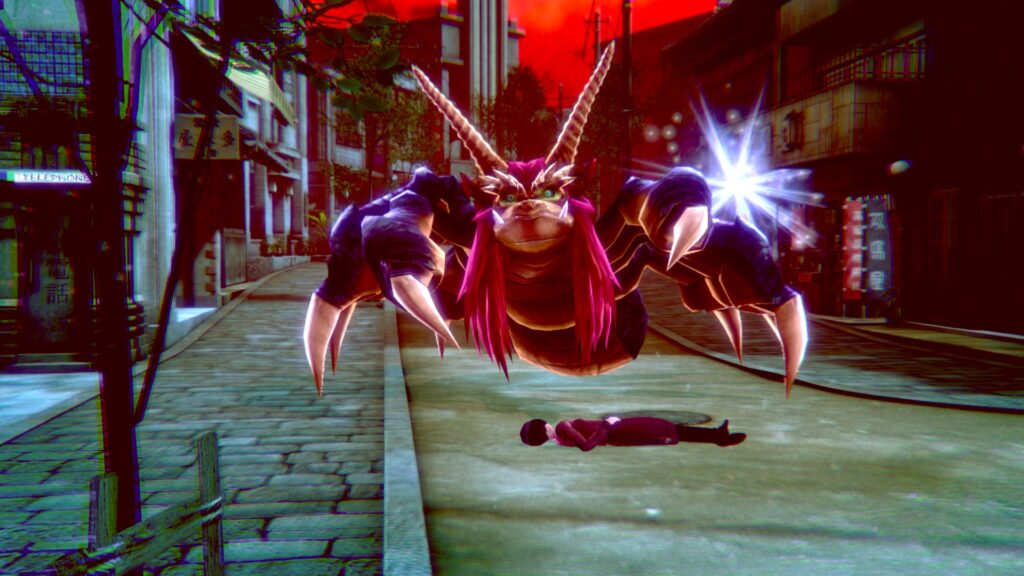RAIDOU: Remastered is a must-play for fans of MegaTen and a great entry point for newcomers. Calling it a remaster, however, is being humble and doesn’t do it justice. This goes well beyond a simple visual touch-up. It’s a remake that builds upon the original PlayStation 2 release of Devil Summoner, enhancing nearly every aspect of the experience, from combat to gameplay and visuals, with plenty of quality-of-life improvements to modernise the experience.
The PlayStation 2 era gave us no shortage of standout RPGs, and just like modern times, ATLUS was a key publisher during that era. With years of experience publishing Megami Tensei titles, they discovered and honed a formula that not only works but is a heap of fun to play.
RAIDOU: Remastered takes the original Devil Summoner experience and builds upon it. With brilliant voice acting, a new third-person camera that follows you during combat, and the ability to summon two demons simultaneously, RAIDOU packs a few notable changes that take it a step above traditional remasters. This feels like a love letter to Shin Megami Tensei and its various spinoffs. Atlus, you’ve genuinely outdone yourselves.
If you’re coming from Persona or other SMT entries, you’ll find RAIDOU Remastered’s characters are well developed from the start. This leads to less focus and time spent on building side characters, which, from a gameplay and story perspective, may seem like a negative, but it’s not; rather, it’s the opposite. The world feels fleshed out from the beginning, with a rich atmosphere felt throughout.
RAIDOU: Remastered leans heavily into replayability thanks to the addition of many new demons, along with multiple difficulties which can be changed at any time. It’s not a once-and-done experience; rather, take your first playthrough (25-30 hours) as an introduction, before eventually attempting the hardest difficulties.

Step into the shoes of Raidou Kuzunoha, a Devil Summoner and detective of the esteemed Kuzunoha clan. As an agent of the Narumi Detective Agency, your role is to investigate and solve mysteries and safeguard the Capital against demonic threats. The majority of gameplay revolves around using your intelligence, wit, and some help from your demons to solve these investigations. To assist, Gouto, your feline friend, will take notes of key pieces of information during your investigations.
The opening wastes no time establishing who you are, what you’re doing, and why – a classic Devil Summoner experience. As the game progresses, the narrative ramps up in intrigue and intensity, building upon the compelling cast and story. While there’s a lack of notable NPCs, the bustling towns help keep things feeling alive and lived in.
Storytelling is delivered through cutscenes and episodic chapters, delivering a familiar experience that mirrors the original. Compared to other SMT titles, RAIDOU Remastered isn’t as cutscene-heavy, making it a perfect entry point for newcomers. The addition of voice acting adds much-needed personality to the cast and story, and while Raidou is still a silent protagonist, his presence is anything but passive.

Maps are split between traversable zones and overworld sections that connect different locations, with fast travel helping navigate the vast world of RAIDOU. These zones are filled with townsfolk, and while they don’t provide much, if anything, in regards to story, they help areas feel alive and distinct. There’s a genuine feeling of township, and thankfully, textures aren’t a blurry, upscaled mess like many other remasters I’ve experienced, so everything comes together nicely.
While the detective loop feels simple, almost fetch quest-like, the environments help keep things somewhat tolerable. While combat has been modernised, I feel like the detective side of things was forgotten about, with no notable changes or improvements. This is a case of me expecting (and wanting) more based on the quality of everything else, rather than a fault of the developers or the game.

Combat in RAIDOU is comparable to Devil Summoner 2: King Abaddon. This is the most significant change from the original Devil Summoner. Devil Summoner 2 has, by far, the better combat – It’s fast, frantic, and no longer random; a welcome (and surprising) implementation in RAIDOU.
Fights are all about balancing MAG and dealing damage, prioritising each depending on the situation at hand is essential to claiming victory. While your summons are your primary damage dealers, that doesn’t make combat any less fun.
The shift to third-person camera is yet another notable change that greatly improves upon the original. The ability to disable the HUD during combat (and exploration) makes for a cleaner display, allowing you to focus on the action.
Best of all, you can now command two demons during battle and switch them on the fly. Additionally, you no longer need to backtrack for fusions. They’re large QoL changes that explain themselves, but are worth a mention. These are all points why I consider RAIDOU a remake rather than a traditional remaster.

Deliver swift blows to recover MAG, or heavy hits to deal extra damage. Feign behind enemies, dodging in time to avoid attacks or strikes from above, the choice is yours. Ranged combat is equally as frantic, allowing you to quickly switch between targets and stop threats in their tracks. Another notable change is the lack of needing to manage bullet inventory – Thanks to infinite ammo, you only need to worry about how many bullets remain in your calibre.
Finally, let’s talk affinities, magic, and confinement. This isn’t your standard rock, paper, scissors system; rather, it’s an additional layer of strategy. Strike enemies with elements they are weak to, and they will be stunned. Attacking stunned enemies always delivers critical hits. Not only do you recover twice the MAG, but you also deal 1.5 times the damage!
Magic abilities both use MAG, but also come with a short cooldown, meaning you cannot simply stun-lock enemies by spamming powerful spells. Upon defeating enemies, your characters will level, letting you allocate points to boost stats. The system is easy to understand as it only features strength, magic, vitality, and luck.
Confinement is initiated to capture demon allies, taming them for use in battle. The stronger they are, the higher your MAG stat must be to capture them. In battle, you can toggle their abilities on and off, along with safeguarding. These elements give you control over their MAG usage and health, adding additional layers to the already dynamic combat. Your demon allies also level; however, their points are automatically allocated to stats, along with unlocking active and passive skills, influencing their role and how effective they are during engagements and investigations.
RAIDOU REMASTERED: THE MYSTERY OF THE SOULLESS ARMY REVIEW
RAIDOU Remastered takes the original Demon Summoner and gives it a plethora of quality-of-life improvements, creating what I would consider an essentially new experience. While the story is the same, engaging combat and a voiced cast help modernise what could have otherwise been a dated PlayStation 2 title. It’s fun, it’s frantic, and it’s unique. This is not only an ode to RPGs past, but proof that ATLAS can and will deliver on its projects.
PROS
Voice acting
A new 3rd person camera that follows the player
Brilliant quality-of-life updates
No need to backtrack to town to fuse demons
Infinite ammo (no more inventory management)
CONS
NPC pop-ins (an element of the era)
The detective loop feels simple, almost fetch quest-like
Reviewed on PC. A review code was provided by the Publisher for purposes of this review.
